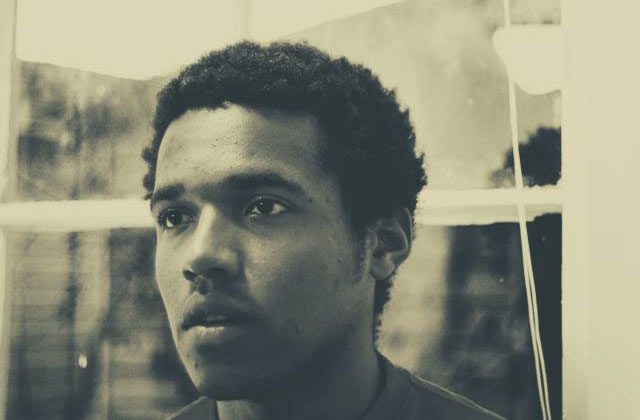For years, Benjamin Booker thought of himself as someone who did interviews, not someone who gave them. The 25-year-old Virginia native spent his college years in Florida training to become a journalist, performing occasionally and recording songs in his spare time. When an AmeriCorps job brought him out to New Orleans to work at a local non-profit, he knew his heart wasn’t in journalism, so he took it to the stage. "I was doing both," he told Consequence of Sound about his first year in the Bayou. "Playing shows around town and working for the non-profit. I stayed there for a little bit, and then I went back to Florida and got Max [Norton] who plays drums and then brought him back to New Orleans."
The storied home of black American jazz and blues became fertile ground for Booker to build a base. Now, on the heels of the release of his self-titled debut LP and after heightened buzz following a performance at Brooklyn’s AfroPunk festival, he’s got more fans than ever interested in the raspy voice and guitar riffs that have become his signature sound in detailing life in contemporary black America.
Like most good art, Booker’s album was influenced by pain. He’s got a history of addiction and mental illness in his family, he told VICE’s Kyle Kramer, which has undoubtedly left its mark on his songwriting:
Well, I first started writing the album when I was living with that girl that I was talking about who was like addicted–this was at the point where I had been like high for basically four years of my life like 24 hours a day and drinking and not taking care of myself. And she was worse than that. I have a history of schizophrenia in my family, and I was afraid that–I don’t know, that’s like the age that that stuff happens. II was afraid that I was like losing my mind because there was a couple of nights that I had some crazy visual hallucinations, and I wasn’t even–I thought I was insane. It was just like a getting my shit together time. Just like ‘I can’t be a kid anymore and getting fucked up all the time.’ And I guess also [I was] just ready to accept certain things about myself. My parents were super religious and conservative and not the type of people that you could go to and talk about things. So I think it’s just communicating the things that I hadn’t been able to say for my whole life. All the pent up things that you want talk about to people but you don’t know how to say it.
That girl, there’s a song called "I Thought I Heard You Screaming" on the record. This was around the time that I thought I was losing my mind, and I was like constantly worried about her all the time. And one night I was in my room, and I heard this blood-curdling scream, and I thought it was her. And I walked in, and she was fine. Like all the worrying manifested into this crazy hallucinating thing. That kind of stuff. Just, like, the people around me, there was so much happening. I was seeing this girl whose father had been murdered in a home invasion, and that was going on at the same time. It was just like a lot of shit happening. And I guess it was me just trying to make sense of that all happening.
You can also listen to a full album stream on NPR.
